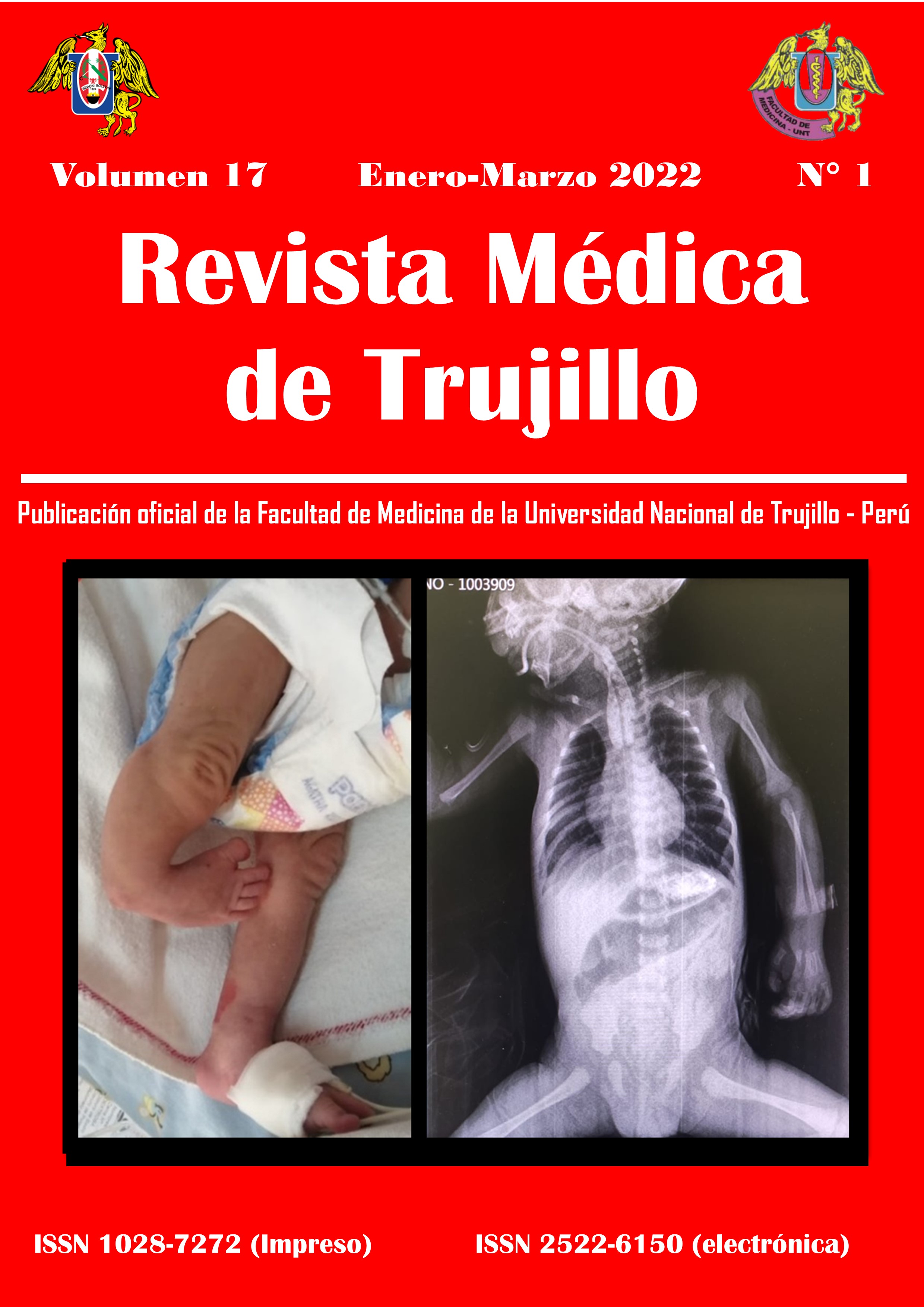Complicaciones Neuro-oftalmológicas asociadas a la infección por VIH
Neuro-ophthalmological complications associated with HIV infection
DOI:
https://doi.org/10.17268/rmt.2022.v17i1.4264Keywords:
Complications, Nervous System Diseases, Opportunistic HIV-related infections, Neural-optic injury, HIV, AIDSAbstract
HIV infection affects all the systems of the human body producing a variety of clinical cases, therefore the aim of this review is to describe the main neuro-ophthalmological complications associated with HIV infection. In the afferent pathway, there are primary optic neuropathies due to direct damage from the virus, and secondary ones, caused by opportunistic infections, neoplasms, ischemia, and drugs, where the clinical presentation varies. On the other hand, within the complications of the efferent pathway are supranuclear defects (conjugate gaze disorders, saccadic dysfunction and soft eye tracking) and cranial nerves III, IV and VI palsies. The damage is mediated by HIV itself or by associated conditions and can occur at any time during the disease. All patients with HIV should undergo periodic ophthalmological evaluations in order to detect these anomalies in a timely manner and mitigate their consequences.
Published
How to Cite
Issue
Section
License

This work is licensed under a Creative Commons Attribution-NonCommercial 4.0 International License.










